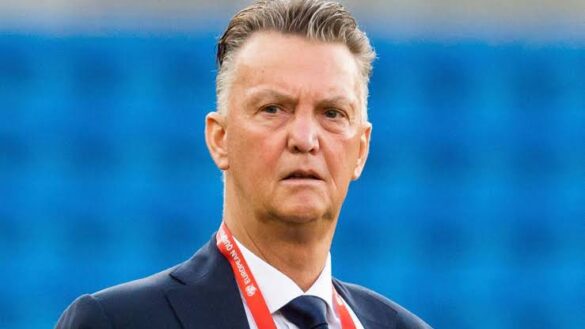Van Gaal Resurfaces as a Possible Solution for Manchester United’s Struggles
Reappointing Louis van Gaal as Manchester United’s manager could be viewed as a backward move, particularly when the club is focused on establishing a new era with a young, energetic squad.
While van Gaal brings extensive experience and tactical expertise, his methods might not align with the club’s vision for the future.
United seeks a leader capable of nurturing its dynamic players and guiding them toward long-term success, and van Gaal’s managerial style, which may have worked in the past, might not be the right fit for this direction.
One major concern with van Gaal’s return is the potential controversy it could stir. While some fans might welcome the return of a familiar face with a successful track record, others may see his reappointment as a regression to outdated strategies.
This divide among supporters could pose a challenge as the club strives to move forward rather than revert to the past. Manchester United’s leadership must carefully weigh the benefits and drawbacks before making such a critical decision, ensuring the club’s upward trajectory continues rather than stagnates under an older approach.
Despite these concerns, van Gaal remains a candidate in discussions about the Manchester United job. His previous stint at the club, along with his tactical know-how, makes him a viable option.
However, the club must closely examine whether van Gaal is truly the best choice. His extensive experience managing top clubs, familiarity with United’s culture, and ability to implement disciplined tactical systems are all in his favor.
However, the club must also consider whether these qualities are what they need to move forward.
Manchester United’s decision will hinge on various factors, including the club’s goals, the availability of managers, and the need for fresh ideas.
While van Gaal’s reputation carries weight, it is vital for the club to choose a manager who aligns with its long-term objectives and the expectations of its supporters.
The leadership must ensure that the next managerial appointment is strategic, positioning the team to compete at the highest level both domestically and in Europe.
Pressure is mounting on Erik ten Hag, as United has struggled to consistently secure a top-four finish in the Premier League.
Any managerial change must address present issues while also looking ahead. In this context, reappointing van Gaal could be seen more as an emotional choice than a forward-thinking one.
The club requires a manager who can adapt to modern football’s challenges and create a high-energy environment that maximizes the potential of its young talents.
Tactically, van Gaal’s conservative, possession-based style might also be problematic. His first tenure at Manchester United produced mixed results, with the team often appearing rigid and lacking fluidity in attack.
In contrast, the current squad, featuring young talents like Alejandro Garnacho and Kobbie Mainoo, has shown promise under a more dynamic tactical setup. Van Gaal’s return could potentially disrupt this progress, leading to a conflict between his methods and the squad’s needs.
Additionally, van Gaal’s age and energy levels are valid concerns. At 72, his ability to handle the demands of the Premier League—arguably the most intense and competitive football league in the world—raises questions.
Modern football requires managers to be adaptable, energetic, and capable of meeting the game’s fast-paced demands. United may be better off with a younger, more progressive manager who can inject fresh energy and ideas into the club.
Fan reactions are another important factor. United supporters have seen the club switch between various managerial styles since Sir Alex Ferguson’s retirement, and van Gaal’s return might be viewed as a sign that the club is struggling to move on from its past.
While some fans may appreciate his return due to his previous connection to the club, others might see it as a step backward, signaling a lack of clear vision for the future.
Instead of reappointing van Gaal, Manchester United could explore alternative managerial candidates who better align with the club’s needs.
Modern, innovative managers like Julian Nagelsmann or Luis Enrique could be considered, as they have the tactical creativity and experience to match the club’s ambitions.
Both managers have a proven ability to balance discipline with offensive freedom while nurturing young talent—qualities that fit United’s current objectives.
If the club still values van Gaal’s expertise, a more suitable role for him could be as an advisor or mentor. His deep understanding of the game and the club’s culture could be leveraged in a position where he helps guide the next generation of coaches and players without returning as manager. This would allow United to benefit from his insights while maintaining a more modern approach to team management.
In conclusion, although van Gaal’s experience and tactical knowledge make him an appealing option, Manchester United must carefully assess whether his return is the best decision.
The next managerial appointment must be based on a forward-thinking strategy aimed at securing long-term stability and success in both domestic and European competitions.Reappointing a former manager may offer familiarity, but it might not be the best way to ensure the club’s future in an ever-evolving football landscape.
